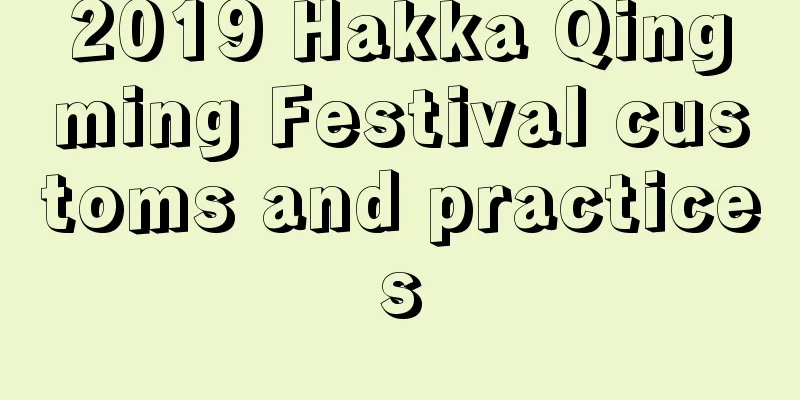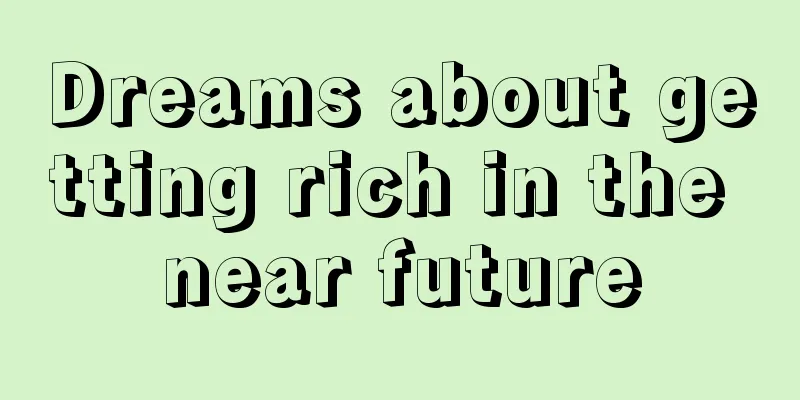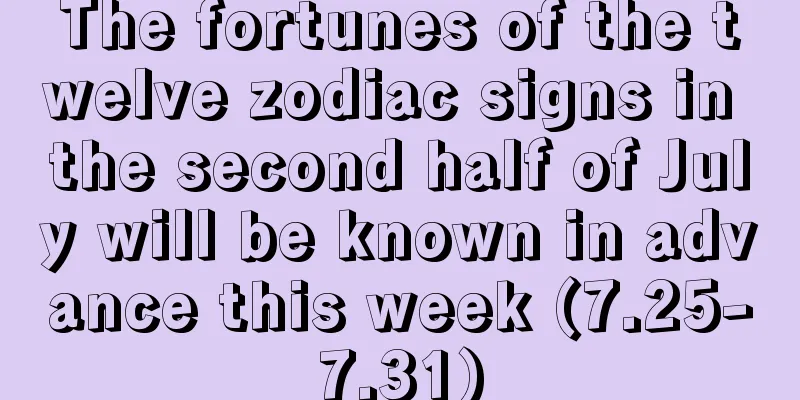2019 Hakka Qingming Festival customs and practices

|
There are many customs for Qingming Festival, among which tomb sweeping is done in almost every place. However, in our country, Hakka people do not sweep tombs during Qingming Festival. Why is that? What are the Qingming customs of the Hakka people? Let’s take a look at it together below. 2019 Hakka Qingming Customs The Hakka people are a group of people who migrated from the Han nationality to the south of the Five Ridges, and even to all parts of the world. They have always prayed for the protection and blessing of their ancestors, so lavish burials and tomb sweeping are an important activity in every Hakka family. The manifestations of lavish burials are "carrying ancestral bones" and "secondary burial". "Carrying ancestral bones" means that the Hakka people carried the bones of their ancestors on their backs during their escape, so as not to abandon the remains of their ancestors to be ravaged by foreigners. Once they found a new place to settle down and looked for a good feng shui site, they would wipe the bones clean, place them in a "golden bowl" and rebury them. This custom has been passed down among the Hakka people. Even if they no longer migrate, they will reopen the tomb, open the coffin, wipe the bones clean, store them in a "golden bucket", and then choose a Feng Shui location and an auspicious time for a "second burial" three to ten years after burying their ancestors. Funerals are also important and sacred worship activities. During the Qingming Festival, Hakka people must plant willow trees at their doors and wear willow trees on their heads to show that they do not forget their ancestors. Willow trees are scarce in the south, so even if they replace them with grass, this practice cannot be omitted. Hakka people will put yellow paper on the grave when they sweep the grave, so tomb sweeping is also called hanging paper, which means that the descendants have come back to worship their ancestors. The Hakka people have reformed the traditional Chinese custom of tomb sweeping on Qingming Festival and changed it to "Spring and Autumn" tomb sweeping. The "Spring Festival" is the first month of spring. The wealthier families start sweeping tombs on the ninth day of the first month. If they have the time and money, they will sweep the tombs in the first month of the year, adding soil where necessary and pulling weeds where necessary. In short, they will do repairs where necessary. In addition, you can also report to your ancestors what plans you have for the new year and how to implement them, and pray for their blessings! The "Autumn Festival" is the slack season after the busy summer harvest and summer planting. On the one hand, there is time, and on the other hand, the fruits of the labor in the first half of this year can be dedicated to the ancestral spirits, and you can pray to the ancestors for a good harvest in the second half of the year. This reform of the Hakka people is very wise and practical. Early in the morning of Qingming Festival, the Hakka people set out with sacrificial supplies, hoes, sickles and other tools. According to local customs, people like to bury their deceased relatives in the mountains. After arriving, everyone started to clear the weeds on their relatives' graves, and the weeds around the graves had also to be cleared. Hakka people believe that clearing weeds cleanly is not only to make it look better, but mainly to express respect and longing for their deceased relatives. After clearing the weeds and placing the offerings, you can start burning incense and worshiping. Each person holds a stick of incense and bows three times, then places the sticks in front of their loved ones' graves. If the person is a male elder who is highly respected, the younger generation needs to kneel down in addition to bowing. Another important custom of the Hakka people during the Qingming Festival is making mugwort cakes. Every household grinds rice and glutinous rice into flour, mixes it with crushed green mugwort leaves, and makes green rice cakes, which are either steamed or fried. They taste very fragrant and delicious. The originally bitter taste of mugwort now becomes very mild, leaving only a faint fragrance. The whole family sits together to eat mugwort cakes. Not only do they enjoy the delicious taste, but they also enjoy the joy of family reunion. Many Hakka people who live in other places always take some mugwort cakes with them when they travel. Summary: During the Qingming Festival, if the Hakka people move, they will move the bones of their ancestors. During the Qingming Festival, the Hakka people will plant willow branches in front of their doors to show that they will not forget their ancestors. |
<<: The time of the beginning of autumn in 2018 indicates that autumn is coming
>>: Susan Miller's Sagittarius Horoscope for December 2018
Recommend
A perfect name for a boy named Jiao
If you need a name plan that you like, you may wi...
Zhou Gong's Dream Interpretation: Dreaming of other people's graves
What does it mean to dream about someone else’s g...
Which zodiac signs like to stay at home the most? Aquarius
Speaking of this constellation, there are so many...
What is the Tianchao Mengmeng Festival? The origin of the Mengmeng Festival on October 10th
Today is October 10th, China's Cuteness Day. ...
Leo Horoscope for April 2012: Love, Career, and Academics
Leo's fortune in April 2012: Leo will make mo...
The cutest zodiac signs, how can they be so cute?
The cutest zodiac sign men, which zodiac sign men...
A smart name for a girl named Xu
A name is a birth gift given to us by our parents...
Soul Level Test Test where your soul is
Buddha said: "All appearances are false.&quo...
Auspicious days for moving in January 2018 List of auspicious days for moving in January
What is a good day to move in January 2018? When ...
Aries personality traits Do you like this kind of Aries?
The biggest character trait of Aries babies is th...
2019 Year of the Pig Blessings Best Wishes for the Year of the Pig
This year is the Year of the Pig, the last animal...
Sagittarius personality traits: little fool + lunatic = this is Sagittarius
When Sagittarius is angry, he will say very unple...
A boy's name with a fashionable surname
Chinese culture is profound and extensive, and Ch...
Xin is a good name for a boy
A name is a birth gift given to us by our parents...
Why do we burn three incense sticks and three sticks of incense? What is the order of burning incense?
Whether we burn incense at home or in a temple, t...









